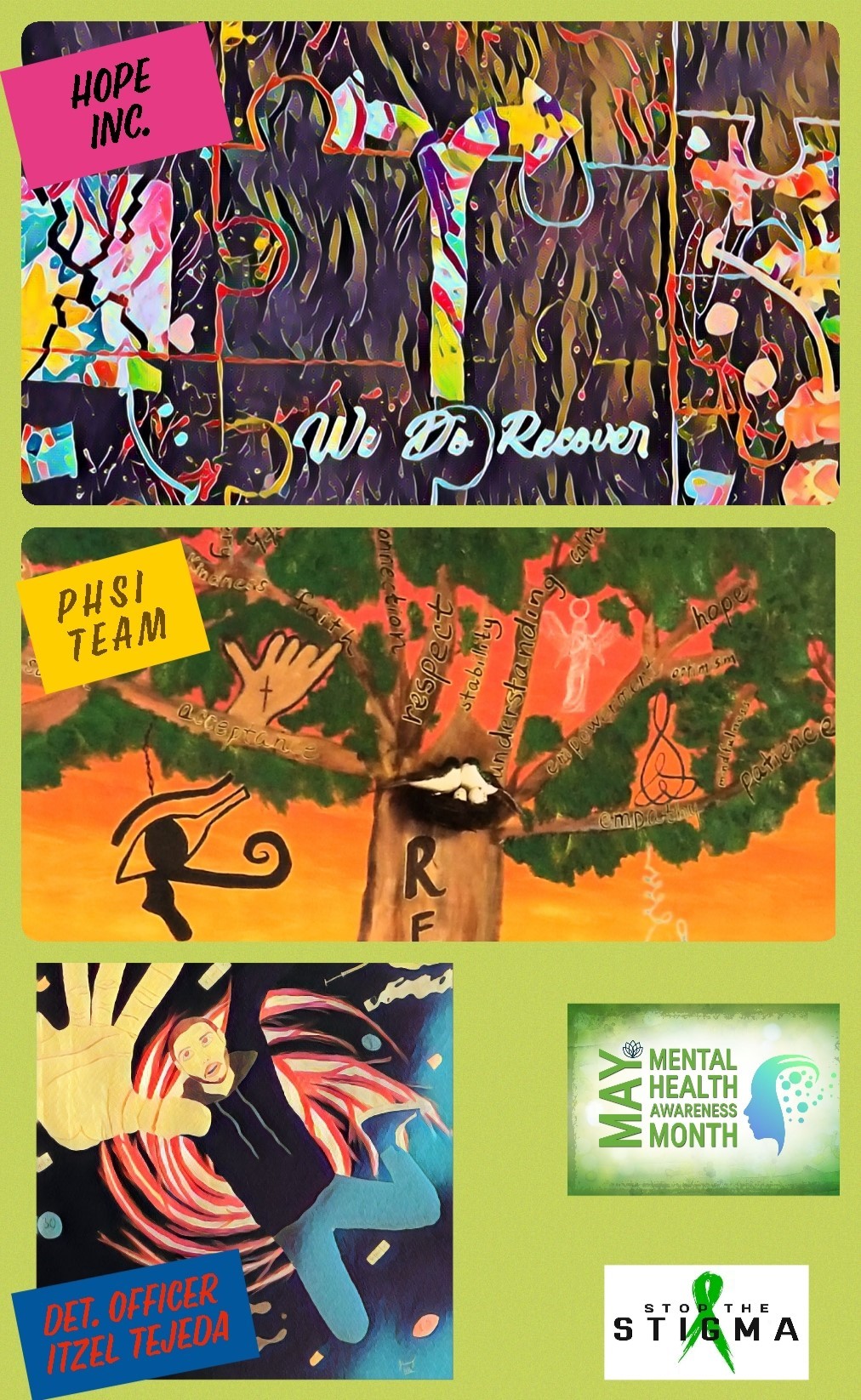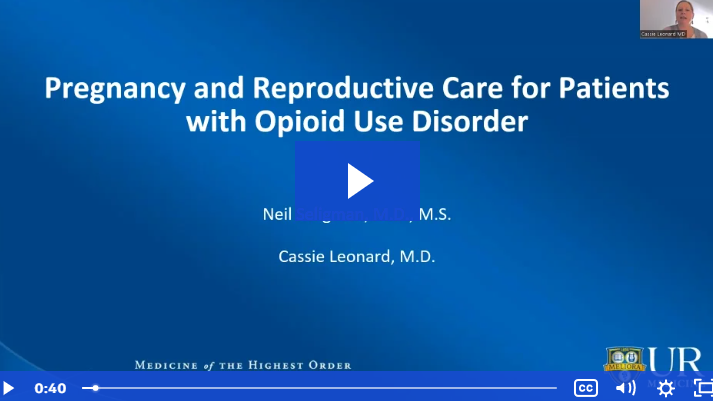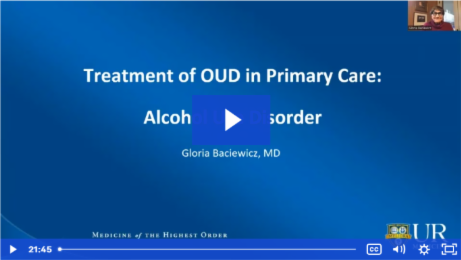UR Medicine Recovery Center of Excellence Newsletter | |
Supporting rural communities as they write
a new chapter in the effort to overcome the overdose crisis.
| |
|
Chapter Seven
Opening up Opportunities for Prevention, Treatment, and Recovery
| |
In This Issue
- Art campaigns in Arizona and Maryland promote health
- Value of community conversations
- New England film festival spotlights recovery
- Overcoming stigma around treatment
- Interactive suicide prevention workshop
- New resources and tools
In this issue we highlight community efforts to overcome stigma related to substance use disorder (SUD) through conversations and programs that use art to change perspectives. We also present new training opportunities geared towards helping patients feel comfortable engaging in treatment and helping health care providers feel confident providing care for SUD. New resources include brief modules on treatment of SUD in primary care and tools on polysubstance use and monitoring trends.
| |
Communities Organize to Overcome Stigma | |
Santa Cruz County raises awareness around mental health and SUD
When the idea arose to address stigma around mental health and SUD with a campaign featuring local artwork, the Nogales, AZ, community was all in. The Santa Cruz County Superintendent’s Office and Justice of the Peace teamed up with the Mariposa Community Health Center and HOPE Inc., a peer- and family-run provider of behavioral health services with a local office in Nogales. Three different groups—counselors and teachers from the Promoting Healthy Students Initiative, various individuals enrolled in the HOPE Inc. recovery program, and detention officer Itzel Tejada—developed themes and created the artwork.
Last May at the center’s Taking Action Summit, Yara Castro, Martin Felix, and Kassandra Figueroa of the Santa Cruz County Overcoming Substance Addiction (SOSA) Consortium presented about their work and the importance of peer support services in bridging gaps. After the summit, we collaborated with them to hold Community Conversations workshops on reducing stigma, organize interviews about recovery, and look ahead to a future art campaign in Nogales.
The three paintings created will be exhibited throughout May for Mental Health Awareness month in various locations in Santa Cruz County, including the county and city complex, public library, high schools, police department, and sheriff’s office among other venues. A sign will invite visitors to write the initials of a loved one who has struggled with mental health or SUD on the back of the paintings.
|  | |
Stories of recovery drive campaign in Maryland | |
|
Portrait of Taylor Gordon
Artist: Joanne Guilfoil
| |
Inspired by one of the center's first Community Conversations workshops on reducing stigma around SUD, held December 2021 in Maryland, the WGP Worcester Goes Purple organization partnered with the Art League of Ocean City to start their own initiative, in which 12 individuals in recovery from four different counties in Maryland were interviewed. Twelve local artists attended the interviews; each paired up with an individual in recovery to create a portrait influenced by their story.
Each portrait is accompanied by a brief statement from the artist and a QR code to watch a short version of the individual's interview. The portrait and video capture an impression of the subject's humanity and tell their success story. Both were exhibited at the Art League of Ocean City in October 2022 and at the Dorchester Center for the Arts in January 2023.
In the interviews, the individuals in recovery were asked what they would share with young adults today, and their responses were the basis for a 15-minute video. The video and portraits are part of a traveling program that has been delivered to seven local public and private middle and high schools and has been seen by 1,451 students so far. An individual in recovery attends each of the school visits and gives students the opportunity to interact and ask direct questions. Wallet-size information cards with contact information for helpful resources are also handed out to students during the visits.
From the interviews, the WGP organization learned that many individuals in recovery pursue art as a therapy for recovery and healing, which led to its next project, “The Art of Recovery.” The project will give individuals in recovery the opportunity to create their own art (submissions are accepted until July 15; see stigmahighlighted.com). Twenty-four Maryland counties are invited to participate. The artwork will be displayed in Salisbury, MD, in September. The organization is also planning a documentary about the impact of addiction on individuals, their families, and communities.
| |
Value of Community Conversations | |
|
Portrait of Melissa Handshoe
Artist: Charmaine Wheatley
| |
|
To overcome stigma around SUD and treatment, the more conversation the better. That was the message delivered by guests Lisham Ashrafioun, PhD, of the University of Rochester Department of Psychiatry, and Tedra Cobb, workshop facilitator for UR Medicine Recovery Center of Excellence. In the podcast Addressing Stigma in Rural Communities Through Art and Workshops, with Prevention Leaders host Dave Closson, they share insights drawn from the center’s collaboration with rural communities across the U.S. to hold Community Conversations addressing stigma. Topics of the podcast include:
- What stigma is and how it becomes structural
- Specific challenges related to stigma around SUD in rural communities
- How the center’s campaign uses art and conversations to reduce stigma and humanize individuals affected by SUD
- How workshops create an environment where participants can share and listen comfortably
- How a train-the-trainer approach, with local facilitation leaders, expands the reach of the Community Conversations
| |
Interested in developing a campaign to reduce stigma or hosting Community Conversations on this topic? Contact our Program Assistance. | |
New England film festival spotlights recovery | |
|
The Maine Association of Recovery Residences (MARR) is preparing to host the first New England REEL Recovery Film Festival. The festival will be held at the University of Southern Maine’s Hannaford Hall in Portland June 23-25, with films from Maine and across the country. All proceeds will go towards MARR’s Bed Scholarship Fund, which provides first month’s rent in a certified recovery residence for Maine residents who cannot afford a chance at recovery. This film festival initiative took root last year when staff from MARR attended the center’s Taking Action Summit. Leonard Lee Buschel, founder of the REEL Recovery Film Festival, was a keynote speaker at the summit.
Tickets are available now!
| |
Trainings to Increase Treatment Engagement and Access | |
 |
CBT-TS helps overcome stigma around treatment
Negative or stigmatizing beliefs can serve as barriers that prevent people who would benefit from treatment for SUD or mental health conditions from engaging in it. The barriers often are greater in rural communities. That’s why Cognitive Behavioral Therapy for Treatment Seeking (CBT-TS), a 45-minute session via telehealth to help patients overcome barriers like self-stigma, can make a difference. CBT-TS has proven to be effective at increasing engagement and decreasing symptoms for patients with SUD, post-traumatic stress disorder, and suicidal ideation.
Dr. Tracy Stecker of the Medical University of South Carolina, who developed CBT-TS, and Dr. Ashrafioun are partnering with rural providers interested in implementing this intervention. The program includes provider training consisting of a single one-hour session that can be completed remotely. The training is applicable in a variety of health care settings and disciplines. The center also provides ongoing support and consultation to rural providers and organizations.
Contact us to sign up for training!
| |
Interactive workshop on suicide prevention | |
|
The center is offering a live, interactive workshop on suicide prevention, led by SafeSide Prevention, on both May 23 and July 25. The workshop, which is free, offers actionable strategies and tools and also includes a full year of learning and interaction with SafeSide’s team. The program is designed to strengthen skills for providers in rural communities, with a special focus on youth, substance use, and Indigenous populations.
Register for a workshop!
| |
Modules on treatment in primary care
To help primary care providers and staff feel confident in delivering care to patients with SUD, the center has designed a comprehensive training program. It is available at no cost and provides continuing education credit. Developed through a pilot program in rural Appalachian New York, it contains some details specific to that region while also applying to primary care practices anywhere in the country. We recently added the following two 20-minute modules:
|  | |
Neil Seligman, MD, MS, and Cassie Leonard, MD, discuss important topics related to pregnancy and reproductive care for patients with SUD. This module includes trends, screening, toxicology, medications for opioid use disorder (MOUD), and withdrawal symptoms, among other topics. It compares outcomes for patients with and without treatment, identifies the elements (screening, counseling, identifying and treating common complications, and assessing treatment) and disciplines involved in patient care, and reviews symptoms and treatment for neonatal abstinence syndrome with information on the incidence in rural communities.
Gloria Baciewicz, MD, provides a historical overview, discusses the prevalence of alcohol use disorder in rural and urban areas, and reviews best practices for screening and treatment. Participants learn about levels of concern, the impact of COVID-19 on alcohol use, and levels of care. The module addresses barriers that are common in rural communities and ways of overcoming them.
|  | |
Tools on polysubstance use and monitoring trends | |
Question & answer for providers
In a new tool, Dr. Baciewicz provides answers to questions providers may have as they respond to the risk of overdose from combined substances. This resource discusses recent trends, drug interactions of concern, approaching patients as risk, and steps to take in caring for patients.
Responding to trends
The drug landscape changes constantly as substances are introduced or used in different ways. To help rural communities monitor and respond, we have published these new resources:
-
Xylazine: This article consolidates information from agencies and providers about the veterinary sedative xylazine and the dangers it poses to humans. It also provides a list of helpful resources for further information.
-
Monitoring substance use trends: This tool summarizes resources that inform about the changing drug landscape, including data, blogs, and announcements from agencies and organizations, as well as community websites with first-hand information.
| |
A selection of webinars and podcasts from our partners | |
-
Rural Communities Opioid Response Program-Technical Assistance (RCORP-TA) offers Rural Roads, a podcast that highlights grantees who are working to increase access to quality behavioral health services, including SUD services, in their communities. Recent episodes have focused on prevention, recovery and harm reduction services, and elimination of the X-waiver.
-
The University of Vermont Center on Rural Addiction hosted the webinar “Illicit Drug Supply: Fentanyl and Xylazine” through its Community Rounds Workshop Series. Speaker Rick Rawson, PhD, provided detailed information on xylazine and fentanyl, including considerations for rural communities.
-
Among the Fletcher Group’s recent webinars was “Promoting Engagement in Meaningful Activities to Support Recovery.” Speakers Beth Collinson, PhD, and Chelsea Dueitt Burge discussed recovery capital and the importance of engagement in personal aspiration, social networks, and community.
| |
We look forward to learning more about your community's needs and assisting you in your efforts. Reach out to our Program Assistance to start a conversation. | |
|
This HRSA RCORP RCOE program is supported by the Health Resources & Services Administration (HRSA) of the US Department of Health & Human Services (HHS) as part of an award totaling $15.7M with 0% financed with non-governmental sources.
The contents are those of the author(s) and do not necessarily represent the official views of, nor an endorsement by HRSA, HHS or the US Government.
| | | | |